On the morning of June 21, 2023, the National Assembly discussed in the hall the draft Law on Land (amended). National Assembly delegate of Tay Ninh province Huynh Thanh Phuong proposed to clarify the responsibilities of agencies, organizations and individuals in planning and land use plans but slow implementation caused damage to land users and wasted land resources.
National Assembly Delegate Huynh Thanh Phuong speaks at the hall.
Delegate Phuong commented that, firstly, regarding the principles of planning and land use planning stipulated in Article 60, the draft Law still has 9 principles compared to the draft for public consultation, including the principle of "Ensuring consistency and synchronization; land use planning at higher levels ensures land use needs of lower levels".
Clause 9 states: “Land use plans are established simultaneously; the plan that is established and appraised first is decided or approved first. After the plan is decided or approved, if there is a conflict, the lower plan must be adjusted to conform to the higher plan.”
According to delegate Phuong, the regulation that land use plans are made simultaneously allows planning levels to be more proactive in implementing their own plans. However, to complete the plan, lower levels must also wait for the approved plan of the higher level. Even if the lower level's plan is proactively implemented first, it is difficult to assess and approve it in advance if there is no plan of the higher level.
Therefore, delegate Phuong said that this principle may cause difficulties when applied in practice, and proposed to amend Clause 9 in the direction that land use plans can be made simultaneously, higher-level land use plans must be approved and decided before lower-level plans, and that there should be clearer and stricter regulations on responsibilities and planning completion time of planning levels, avoiding the situation where lower levels have to wait for higher-level plans, causing delays in the work of making annual land use plans and plans, affecting the legitimate rights and interests of organizations and individuals.
Second, regarding the organization of implementation of land use planning and plans stipulated in Clause 3 and Clause 4, Article 76, in cases where land has been planned but there is no land use plan, the rights of land users shall not be restricted; in cases where land has been planned but there is no land use plan, land users in the area where land use purposes must be changed and land recovered shall have certain rights restricted, such as not being allowed to build new houses, works, or plant perennial trees; if there is a need to renovate or repair existing houses or works, permission must be obtained from a competent state agency.
Delegate Phuong said that in reality, there are many planning projects but slow implementation, greatly affecting the legitimate rights of land users. The provisions in the Draft Law state that if there is planning but no land use plan, the rights of land users will not be restricted.
However, in reality, if real estate is subject to planning, even if it is allowed to be transferred, the price will be limited, transactions will be difficult, construction and repairs will not be allowed, causing damage to people and wasting land resources.
On the other hand, according to the provisions of Clause 5 of this Article, after 3 consecutive years as determined in the annual land use plan without a decision to reclaim land or permission to change land use purpose, the competent state agency approving the land use plan must consider and evaluate to continue implementation in the next year's land use plan or cancel it.
If there is a basis for cancellation, the rights of land users may be slightly affected; but if it continues to be included in the land use plan for the following year but is still not implemented, when will the planning be stopped? If it is prolonged, it will greatly affect land users in the planned area and the land use plan.
Therefore, delegate Phuong suggested that the Drafting Committee clarify more about the rights of land users in cases where land has been planned and there is a land use plan and clarify the responsibilities of agencies, organizations and individuals in planning and land use plans but slow implementation causes damage to land users and wastes land resources.
Third, regarding land dispute mediation, Clause 5, Article 233 stipulates: “In cases where land dispute mediation prescribed in Clauses 1, 2 and 3 of this Article is successful and there is a change in the current status of boundaries, area and land users, the agency or organization conducting the mediation shall send a document recognizing the successful mediation result to the competent state agency to carry out registration and grant certificates according to regulations”.
Because there are many agencies and organizations that conduct mediation, when the mediation is successful, it is appropriate for those agencies and organizations to send a document recognizing the results to the competent state agency to carry out the registration and grant of certificates according to regulations.
However, according to delegate Phuong, in the case of self-reconciliation by the parties (disputes can be between individuals or between individuals and organizations), that is, there is no third party, an agency or organization, acting as a mediator, how will the successful reconciliation be carried out? Do the disputing parties who have self-reconciled need to go to the People's Committee of the commune where the disputed land is located to confirm the legality of the self-reconciliation record? Delegate Phuong suggested that the Drafting Committee provide clearer regulations.
Fourthly, regarding the authority to resolve land disputes, Article 234 of the Draft Basic Law retains the authority to resolve land disputes as in the current Land Law with the orientation of still expanding the rights of the people in choosing the competent authority to resolve land disputes in cases where the land does not have a land use right certificate. Resolving land disputes at the People's Committee or the People's Court both have certain advantages and limitations.
Delegate Phuong wondered that in reality, if there is a land dispute where the land does not have a land use right certificate and there is no dispute over the property attached to the land, the People's Committee can resolve it.
In case of land disputes where the land does not have a land use right certificate and there is a dispute over property attached to the land, if the parties choose the People's Committee to resolve, the People's Committee will only resolve the land dispute, it cannot resolve the dispute over property attached to the land, so the resolution will not be thorough, the parties must also file a lawsuit in Court to resolve the property dispute, which will prolong the time to resolve the case.
Therefore, delegate Phuong suggested that the Drafting Committee consider adding regulations that in cases of land disputes where the parties do not have a land use right certificate and there is a dispute over property attached to the land, the case will be assigned to the People's Court for settlement.
In addition, in Clause 3, Article 234 on the authority to resolve land disputes, delegate Phuong agreed with the review opinion of the National Assembly Economic Committee, and at the same time proposed to consider the provisions on procedures for cases where the disputing parties, if they do not agree with the settlement decision of the People's Committee at a lower level, must file a complaint against that settlement decision with the People's Committee at a higher level, not sending a request for dispute settlement to the People's Committee at a higher level, which is in accordance with the Law on Complaints; if a request for dispute settlement is sent, what is the order and procedure?
At the same time, Clause 6 stipulates: “People’s Committees at all levels are responsible for providing records and documents related to land management and use when requested by the People’s Court as a basis for dispute resolution”. And according to Clause 3, Article 106 of the 2015 Civil Procedure Code, “…
Agencies, organizations and individuals who do not comply with the Court's request without a valid reason may, depending on the nature and severity of the violation, be subject to administrative sanctions or criminal prosecution in accordance with the provisions of law...". However, there are currently no regulations on administrative sanctions for acts of delay or failure to provide documents and evidence in resolving civil cases.
According to delegate Phuong, in practice, in many cases where the Court has a document requesting relevant agencies to provide evidence, the provision is often very slow. When the deadline for resolving the case has expired and the evidence has not been provided, the Court must temporarily suspend the resolution pending the results of providing documents as a basis for resolving the case, causing the resolution to be prolonged, causing frustration for the people.
Therefore, delegate Phuong suggested that the Drafting Committee should have stronger sanctions on the responsibility of the People's Committee and relevant agencies in providing records and documents related to land management and use when requested by the People's Court as a basis for dispute resolution.
Thanh Trung
(summary)
Source link


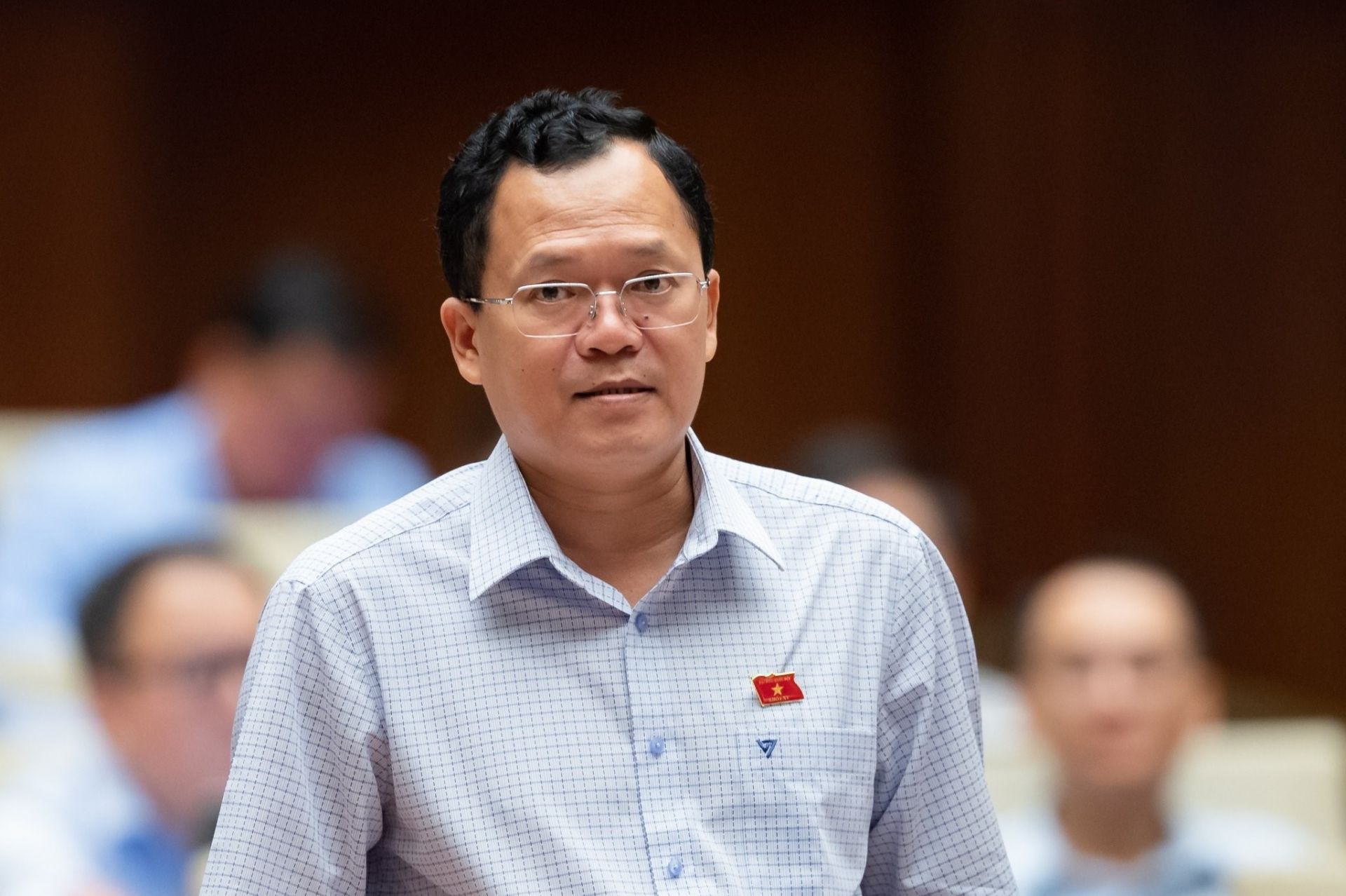

![[Photo] President Luong Cuong attends the inauguration of the international container port in Hai Phong](https://vphoto.vietnam.vn/thumb/1200x675/vietnam/resource/IMAGE/2025/5/13/9544c01a03e241fdadb6f9708e1c0b65)


![[Photo] Prime Minister Pham Minh Chinh meets with US business representatives](https://vphoto.vietnam.vn/thumb/1200x675/vietnam/resource/IMAGE/2025/5/13/5bf2bff8977041adab2baf9944e547b5)

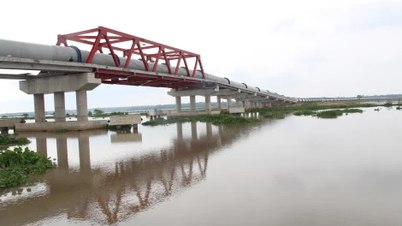
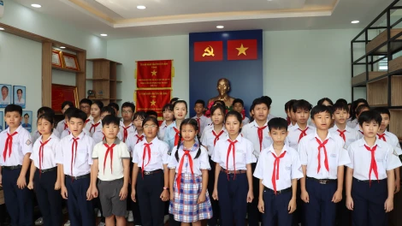



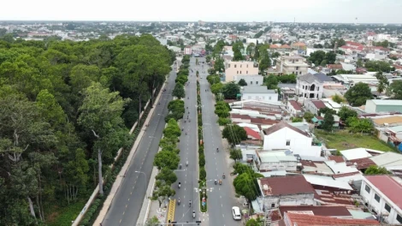





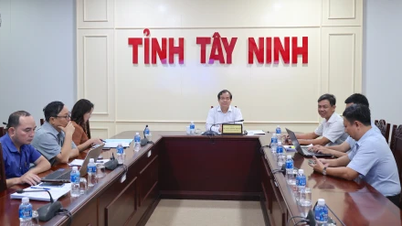
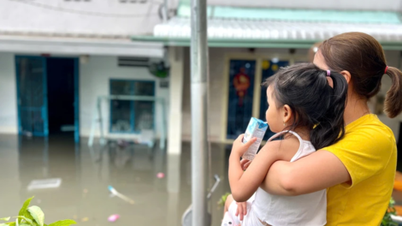
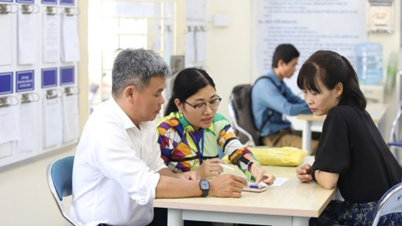












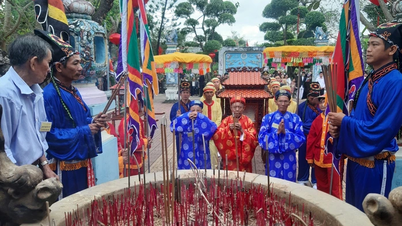










































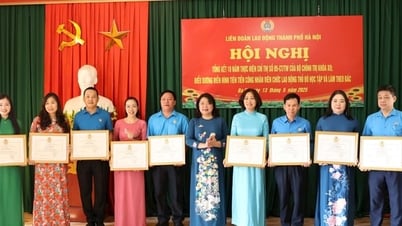



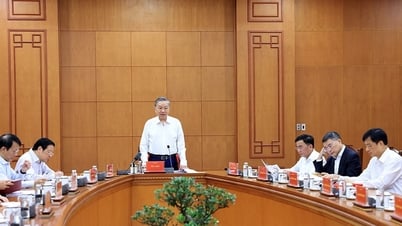













Comment (0)